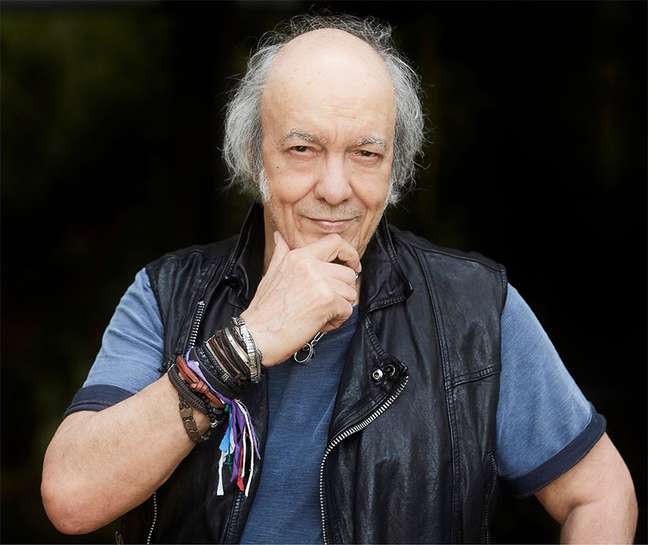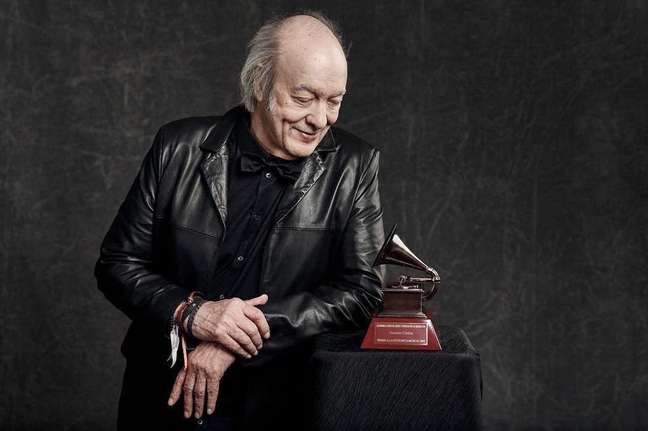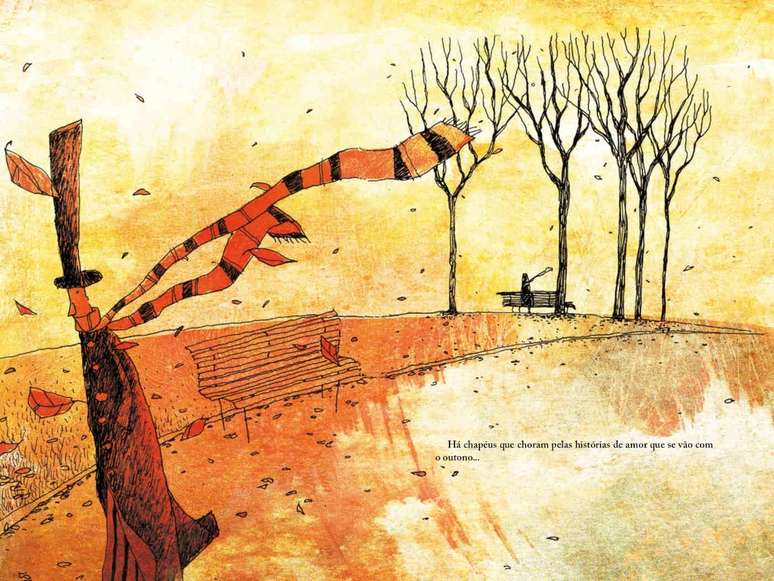
The singer and actor Erasmo Carlos, icon of Jovem Guarda and Brazilian rock, died this Tuesday (11/22) in Rio de Janeiro, at the age of 81.
The singer was admitted to the Barra D’Or hospital, in Barra da Tijuca, but could not resist. The hospital was the same place where Erasmo was admitted earlier this month to be treated for a lung infection.
Although the cause of death has not yet been disclosed, Erasmus had been treating an oedematous syndrome for several months, which occurs when there is a biochemical imbalance that makes it difficult to maintain liquids inside the blood vessels.
During his career, the artist has composed more than 600 songs, including such classics as “Minha Fama de Mau”, “Mulher”, “Quero que Tudo Va para o Inferno”, “Even If It’s Me”, “É Proibido Fumar ” and “Sitting by the road.”
Erasmo Esteves, his birth name, was born on June 5, 1941 in Tijuca. As a child he had contact with big names in MPB, such as Tim Maia and Jorge Ben Jor, with whom he lived in the neighborhood. As a teenager, he went to see a Bill Haley concert at the Maracanãzinho, where he met his rock partner, Roberto Carlos, with whom he would form the most successful songwriting duo in Brazil.
At first Erasmus did not believe he could pursue a solo career. He was part of the band Snakes, with which he played until 1961, then he decided to work as an assistant to presenter and producer Carlos Imperial.
In 1963, he became lead singer of the Renato & Seus Blue Caps group, replacing Ed Wilson, the original lead singer. Besides securing the band’s contract with a record label, he managed to successfully record a song together with Roberto Carlos, which marked the first collaboration between the two.
The stage name he adopted, Erasmo Carlos, was a tribute to the partners who helped him in the beginning of his career: Roberto Carlos and Carlos Imperial. Erasmus was also known as Tremendão and as Gentle Giant.
In the 1960s, Roberto and Erasmo became the two main composers of Jovem Guarda, a national musical movement heavily influenced by the sound of the Beatles.
Gradually, however, Erasmo began to approach MPB and also recorded “Aquarela do Brasil”, in 1969, before taking on the influence of the hippie culture and soul music of his old friends Tim Maia and Jorge Ben. His album “Carlos, Erasmo”, released in 1971, was quite controversial, mainly due to a song “De Noite na Cama”, written by Caetano Veloso, which was an ode to marijuana. It marked the era.
In the following decade, he initiated the “Erasmo Convida” project (1980), pioneer for being the first album entirely of duets in Brazil, made in collaboration with great artists, such as Nara Leão, Maria Bethânia, Gal Costa, Wanderléa, Gilberto Gil , Rita Lee, Tim Maia, Jorge Ben, among others.
During this period, he also stands at the forefront of important causes such as the defense of the environment, which he sings in the suggestive “Panorama Ecológico” (1978), without forgetting “O Progresso” (1978), “As Baleias” (1982), ” Amazônia” (1989) and others recorded by Roberto. He also made an ode to feminism in “Mulher” (1981) and scandalized conservatives with an LGBTGQIA+ classic, praising the beauty of transsexual muse Robert Close in “Dá um Close Nela” (1984).
Erasmo was also present at the first edition of Rock in Rio, which took place in 1985.
After a period away from the media, he took advantage of Jovem Guarda’s 30 years in 1995 to return to rock with new shows, releasing the following year the album “É Quero Saber Viver”, with re-recordings of songs from his repertoire.
Over the years, Erasmo Carlos has collaborated on hits with big names in Brazilian music, such as Chico Buarque, Lulu Santos, Zeca Pagodinho, Skank, Los Hermanos, Djavan, Adriana Calcanhotto, Marisa Monte, Frejat, Marisa and Milton Nascimento.
And he continued to record into this century, receiving recognition just days before he died with the Latin Grammy. Last Thursday (17/11), Erasmo received the trophy for the best rock or alternative music album in Portuguese, “O Futuro Pertence À… Jovem Guarda”, released in February, which reinterpreted songs from the period by Jovem Guarda that had never recorded before.
In addition to his well-known musical career, Erasmo Carlos has also excelled in cinema.
Her screen debut even precedes Jovem Guarda: it was in the comedy “My mother-in-law is a policewoman” (1958), directed by Aloisio T. de Carvalho. But it is alongside Roberto Carlos and the singer Wanderlea that he becomes a star on the screen, in the musical program “Jovem Guarda”, on Record TV, and in a couple of films inspired by Beatles comedies: “Roberto Carlos and o Diamante Cor-de- Rosa” (1968) and “Roberto Carlos at 300 kilometers per hour” (1971).
At the same time, he also extended the collaboration with Wanderlea in “Agnaldo, Perigo à Vista” (1969), starring the singer Agnaldo Rayol. And he also appeared in the comedy ‘Os Machões’ (1972) and in the children’s film ‘O Cavalinho Azul’ (1984).
After many decades, he resumed his acting career in recent years, starring in the musical drama ‘Paradise Lost’ (2018), which paid homage to cheesy music, and the youth comedy ‘Airplane Mode’ (2020), a Netflix production starring Larissa Manoela.
In the meantime, Erasmus too saw his life transformed into a film. Entitled “Minha Fama de Mau,” the biopic starred actor Chay Suede in the role of Erasmus, reliving the artist’s youth.
Last month his latest work was released, the song “Nanda”, created in collaboration with Celso Fonseca. The song was a tribute to actress Fernanda Montenegro.
Upon learning of his death, President-elect Luiz Inácio Lula da Silva took to social media to pay his respects.
“Erasmo Carlos, far beyond Jovem Guarda, was a very talented songwriter, author of many of the songs that most moved Brazilians in recent decades. Tremendão, a faithful friend, a companion brother, sang about love, the power of women and concern with the environment,” she said.
“I miss you and dozens of songs that will always remain in our memories and the soundtrack of our lives. My condolences to Erasmo Carlos’ family, friends and fans,” he concluded.

🇧🇷The best content in your email for free. Choose your favorite Terra newsletter. Click here!
Source: Terra
Amanda Larkin is a celebrity journalist at Gossipify, known for her in-depth interviews and unique perspectives on the entertainment industry. She covers celebrity news and gossip, providing readers with engaging and informative content, and understanding of the inner workings of the industry. She’s respected for keeping readers up to date with the latest trends and providing a fresh perspective on the celebrity world.








